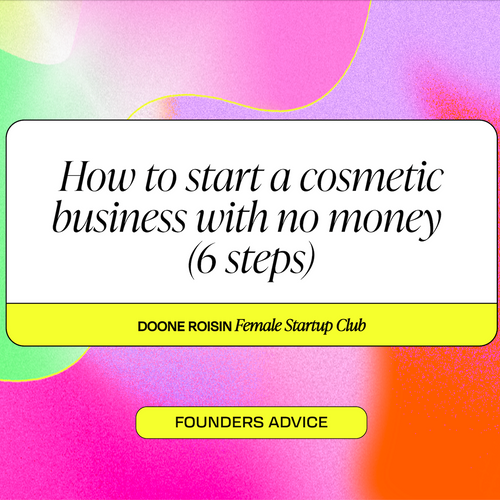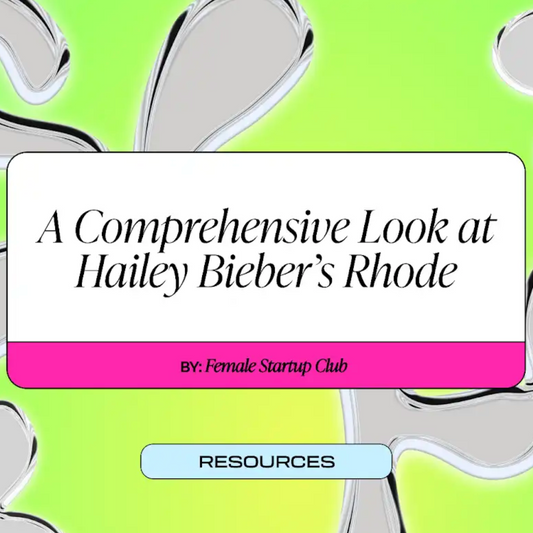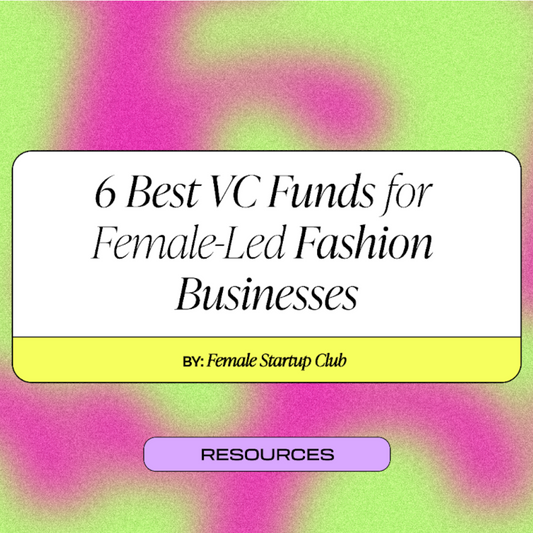Joining me on the show today is Emma Rose Cohen, the founder of Final - the company who advocates for sucking responsibly.
In 2018 Emma set out to create the world’s first collapsable straw and make an impact on our oceans and the planet. She launched her idea on Kickstarter with the goal to raise around $12,000 and instead it went absolutely bonkers, raising 2 million dollars in total with around 100,000 straw orders. You might think it was a good enough reason to celebrate, but there were plenty of hurdles that came with it’s success.
Today we’re chatting about what makes a good kickstarter and what happened after the campaign went viral. Why it’s important to protect your intellectual property against the manufacturers who are out there specifically to steal your ideas and flood the market with cheap knock offs, and how to set your own campaign up for success.

The Kickoff: A Surprising Success
Emma's journey began with a bold vision, but she admits she didn't anticipate the overwhelming success of her Kickstarter campaign. Raising between $1.8 and $2 million was a monumental achievement, but the initial excitement quickly transformed into a wave of anxiety.
"I definitely did not have that vision," she explained. "It was such an emotional experience to launch and then have that kind of affirmation. My friends and family were skeptical at first, telling me to hold on to my day job. But when it succeeded, it felt like I was on the right path, and the world was interested in these types of solutions."
Her mission has always extended beyond just providing an alternative to plastic straws. For Emma, it’s about initiating change, starting with a small behavior. "If I can get someone to change on this small behavior, like using a straw, what else can we create together?"
Humor and Authenticity: The Voice of Final
Final's marketing strategy is anything but conventional. Emma emphasizes the importance of humor in connecting with customers. "We don't want to be just another company hugging trees and cleaning up beaches," she remarked. "That's already out there, and it doesn't hit people in their heartstrings. I like to do that through humor."
The recent launch of the "Biggie Straw" was a testament to this playful approach, featuring cheeky marketing that made consumers laugh. Emma believes that authenticity is key. "People want to hear your authentic voice. It’s what makes your company stand out and what makes you special."
The Post-Campaign Reality
After the initial success of the Kickstarter campaign, Emma faced the daunting task of mass production. The excitement of raising funds quickly turned into the reality of having to deliver. "People thought I must have been celebrating, but I went from excitement to dread," she recalled. "I had to figure out how to make 100,000 straws in six months, and I had no idea where to start."
Emma had to pivot quickly, transitioning from a prototype to a product ready for the market. The design process was challenging, and she had to ensure the manufacturing process was cost-effective. But through support from friends, community, and business coaching, she navigated the complexities of launching a new product.
Learning from Challenges: The Reality of Copycats
Once the Kickstarter campaign wrapped up, Emma encountered another hurdle: the emergence of knockoffs. Just weeks after launching, counterfeit products began flooding the market. "I knew that knockoffs were a thing, but I didn’t realize how intense it would get," she said. "Our customers were furious, thinking we were launching cheap versions of our product."
This experience taught Emma the importance of protecting her intellectual property. "I had inadvertently created hundreds of thousands of knockoffs as a byproduct of what we created," she lamented. However, she emphasized the lessons learned and the importance of having a strong patent enforcement team to combat these challenges.
Staying Grounded: Coping with Stress
With the ups and downs of entrepreneurship, Emma recognizes the toll it can take on mental health. "I got really sick during the first three months after we launched," she admitted. "I wasn’t working out, eating well, or sleeping. I would literally fall asleep with my computer in bed."
To cope with the stress, Emma established a strict morning routine, incorporating meditation and exercise into her day. "You have to pull yourself away and make sure you're taking care of yourself," she advised. "Meditation and breathwork have been vital for me, especially when my mind races with a hundred things to do."
Marketing with a Purpose
When discussing Final's current marketing strategies, Emma highlighted the significance of brand voice. "It’s about conveying the message in a fun, relatable way that invites people to join us in our sustainable journey," she shared. The humorous and authentic approach has resonated with customers, contributing to the brand's growing popularity.
The Road Ahead
Emma Rose Cohen’s journey with Final is a testament to the power of perseverance, creativity, and a commitment to sustainability. With her infectious enthusiasm and innovative approach, she's not only making waves in the straw industry but also inspiring others to think critically about their consumption habits.
As she continues to expand her product offerings, Emma’s vision remains clear: creating sustainable solutions that resonate with consumers on a deeper level. "If we can shift one behavior, imagine what we can achieve together," she said, leaving listeners inspired to join her mission of sucking responsibly.
Whether through humor, authentic storytelling, or relentless dedication, Emma is paving the way for a more sustainable future—one straw at a time.



